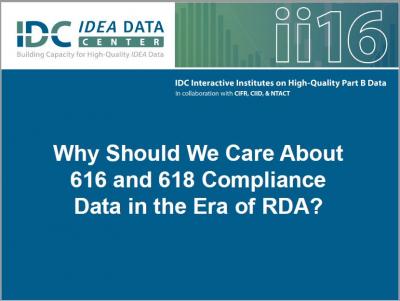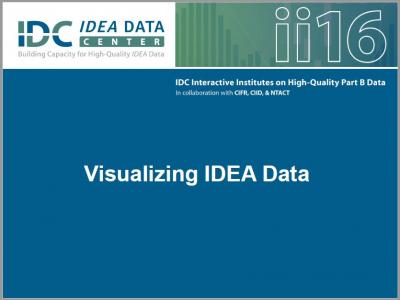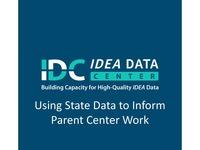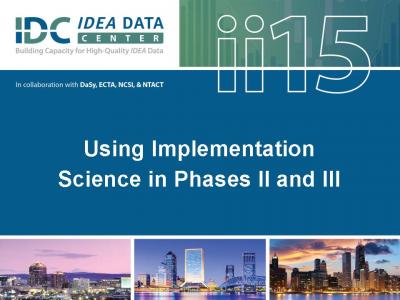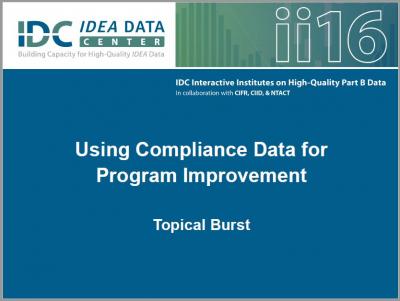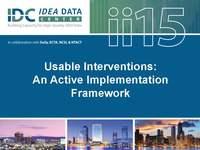Archived Resources
The Resource Library houses tools and products that were developed by IDC, developed with its collaborators, or submitted by IDC stakeholders. Search and filtering tools are available to help users navigate through the library.
Archived Resources 1 - 7 of 88
Format: Presentations
Why Should We Care About 616 and 618 Compliance Data in the Era of RDA?Some have suggested that RDA and the shift from a focus on compliance to a focus on improving results for children with disabilities appears to have relegated compliance data to the back of the bus. Presenters from the U.S. Department of Education, OSEP highlighted the crucial role that section 616 and section 618 compliance data still play in RDA. Additionally, presenters shared ideas on how these data can be used not only for compliance but also to improve results for children and students with disabilities.
Format: Presentations
What We Learned From Phase I and What to Expect for Phase IIThe presentation shares information about what OSEP learned from SSIP Phase I and expectations for Phase II and includes a look at the OSEP process for review of Phase I and support for states. Helpful handouts are included.
Format: Presentations
Visualizing IDEA DataIDC staff provided an introduction to data visualization approaches that are particularly useful for presenting IDEA data for the public. Participants learned simple strategies, chart types, and report styles that can be used to visualize the state’s data using Microsoft Excel, PowerPoint, and free online tools. Presenters also provided a set of activities so participants can continue developing their capacity in follow-up to the interactive institute.
Format: Presentations
Using State Data to Inform Parent Center WorkThe purpose of this presentation was to introduce PTI and CPRC directors and staff to the IDEA data collected and reported by state education agencies and discuss how these data can be used to inform many of the fourteen priority topics for the PTI/CPRC network. These priorities were identified in the most recent OSEP requests for proposals for PTI and CPRC funding.
Format: Presentations
Using Implementation Science in Phases II and IIIUse of implementation science is critical in planning and implementing systemic improvement. This information explores how to operationalize the components of implementation science and how to select, implement, and scale-up chosen evidence-based practices. Helpful handouts are included.
Format: Presentations
Using Compliance Data for Program ImprovementIt can be challenging to bridge the huge shift from a focus on solely compliance-driven data to an emphasis on results-driven monitoring. Compliance data can be hard and fast; results-driven data can be harder to pin down. This topical burst provided an overview of compliance data, the interrelationship between compliance and results data, and existing processes that can help bridge the gap between accountability and program improvement.
Format: Presentations
Usable Interventions: An Active Implementation FrameworkThe presentation describes the four criteria for a usable intervention, one of the active implementation frameworks, and tools and processes for assessing and improving the usability of an intervention.

